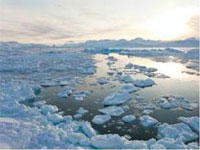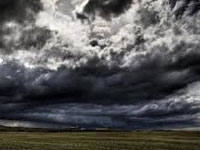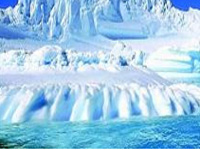Alaska sees record temperatures in heatwave
An "all-time high" temperature record has been set in the US state of Alaska, despite much of the country sitting in the Arctic circle. Temperatures peaked at 32.22 Celsius (90F) on 4 July at an airport
An "all-time high" temperature record has been set in the US state of Alaska, despite much of the country sitting in the Arctic circle. Temperatures peaked at 32.22 Celsius (90F) on 4 July at an airport
Arctic sea ice fell to its lowest ever May extent, prompting fears that this year could beat 2012 for the record of worst ever summer sea ice melt. Data published by the US National Snow and Ice Data
A glacier that is one of the largest at the source of China's Yangtze River is fast retreating because of climate change, state media said. The Jianggudiru Glacier on Geladaindong Mountain in a remote

The Arctic is on track to be free of sea ice this year or next for the first time in more than 100,000 years, a leading scientist has claimed. Provisional satellite data produced by the US National
The Arctic is on track to be free of sea ice this year or next for the first time in more than 100,000 years, a leading scientist has claimed. Provisional satellite data produced by the US National
<p>Changes to the grounding line, where grounded ice starts to float, can be used as a remotely-sensed measure of ice-sheet susceptibility to ocean-forced dynamic thinning. Constraining this susceptibility

Deep, cold ocean currents from the North Atlantic blunt the effect of global warming on Antarctica and slow the rise of sea levels, according to a study published Monday. This icy insulation of the

KOCHI: India's iconic Elephanta Caves , the glorious abode of Lord Shiva and an epitome of Hindu cave culture, is facing a long-term risk from sea-level rise, according to a new report. The Elephanta caves,
Graph from the US National Oceanic and Atmospheric Association shows 2016 shows this year significantly hotter than ever the last few hot years.Graphic courtesy of NOAA After 12 consecutive months that

Why has the sea ice cover surrounding Antarctica been increasing slightly, in sharp contrast to the drastic loss of sea ice occurring in the Arctic Ocean? A new NASA-led study has found the geology of
Global warming could raise sea levels by almost three metres (9.8ft) by destabilising a major eastern Antarctic glacier, scientists have said. A study predicts that unless the current rate of climate